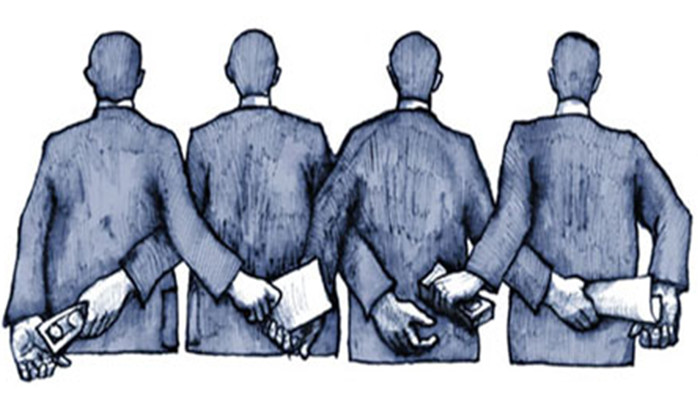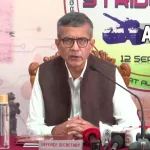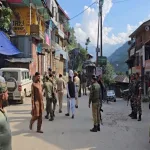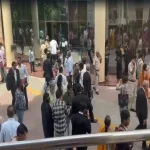What a coincidence! Chief Minister Omar Abdullah virtually assumed office on October 17 in Jammu and Kashmir/J&K and the same day happened to be the international day for eradication of poverty. J&K has elected the government which can work wonders should it act as the government of the poor, for the poor and by the poor.
To the United Nations, the theme for this year will highlight one of the hidden dimensions of poverty, which is the social and institutional maltreatment experienced by people living in poverty, and consider ways to act together to promote just, peaceful and inclusive societies.
The UN stated that millions of people living in extreme poverty is a moral outrage in a world where there is an unprecedented level of economic development, technological means and financial resources. Poverty is not solely an economic issue, but rather a multidimensional phenomenon that encompasses a lack of both income and the basic capabilities to live in dignity.
J&K has performed far better over the recent years in beating poverty. However, providing subsidies and other aids do more harm than good: the beneficiaries largely avoid working. A curse. Knowing that some aid will come their way, most recipients conceal their real social position to undeservedly bag subsidies/ aids. Greater participation in economic activities is called for to yield local welfare, induce a hard working mindset and combat poverty.
True, the road ahead is an uncharted territory but poverty eradication is essential. A paradigm shift has occurred in J-K’s polity over the last 8-10 years. Inspite of the obstacles, the restoration of democratic processes has opened new vistas. The onus for the now is on the public representatives to fight poverty — a genuine social justice.
Okay with seeking the statehood restoration, a mouthwatering political goal. Notably, the people of this trouble-torn region are desperate for a change impacting their lives — developmental activities, speedy disposal of local grievances, protection from the bribe takers.
This UT’s new dispensation should give more powers to the Anti-Corruption Bureau (ACB) to investigate the allegations of bribery or corruption. Those found guilty must not be simply jailed, but be forced to return the billions of rupees they have looted from the people. A crucial step to fight poverty.
Last week, the ACB remarkably arrested an Assistant Executive Engineer (AEE) of Roads and Buildings (R&B) Department, Sopore division, for allegedly demanding a bribe of Rs 25,000. During the current year, the bureau had booked the former Vice Chairman JDA for ‘illegally approved IT Park construction’. On January 5, 2024, two government officials were booked for demanding and accepting a bribe; later a scientist was nailed.
Punishing the bribe takers is a bounden duty of every government; but to treat the cancer of bribery, the key is to address its deep-seated seated causes. For instance, the greed of amassing wealth and property — at the expense of the common person’s welfare.
Secondly, the crying need by those lower rung officials whose monthly income falls short of their cost of living. Highly paid officials are not excluded. Indeed, no justification can suffice to escape the rulebook for indulging in the wrong doing. However, these officials purportedly extract money from public under this and that excuse.
There is no quick- fix solution to eliminate the causes of bribery. Right steps are imperative for improving the financial position of the lower rung officials in line with the cost of living. Notably, the extraction of money impedes public welfare, tarnishing government’s image.
It is corruption and bribery, in the recent past, that has ended up in the cancellation of many selection processes of job seekers. Further, corruption and bribery impacts economy, public trust, work ethics and work culture. Also uncertainty prevails as developmental works come to a grinding halt or get delayed. Various plans and projects are often left incomplete or undone. In such a state of affairs, the values like justice, equality and the rule of law just remain lip service.
Worse, the reputation of the institutions tasked to honor merit has been hit. Can we work with integrity to respect merit and ensure good mental health of the job seekers? We do have strict laws which require officials to refrain from the illegal earnings; the ground realities are different though. Speedy conviction of the perpetrators, regardless of rank, could be a deterrent.
According to the data by the J&K State Vigilance Organization, from 2013 to Dec 2016, about 172 cases of FIR were registered and 151 cases are still under investigation with no conclusion and cases are going at low speed and many await justice.
In About 95 percent cases, complaints were filed against low rank officials for their getting bribe of Rs 1000 to Rs, 5000. Not a single case was filed against top ranking officials who have been abusing the system .A big reason is inaction against the wrong.
Sadly, children learn from the behavior of their elders that only the self matters. They grow up with the learning that they simply have to feather their own nests at the expense of the interests and welfare of the fellow citizens. We see this negative attitude in the wasting of resources, say, water, power and food. We see it on roads in the form of bad driving, bad parking and rash behavior.
Religions, media and educational institutions have to lead from the front. Laws and regulations need to be applied strictly, properly and justly. Addressing income inequalities, pay anomalies; ensuring fair distribution of national income and that no big fish slips through the wide anti-corruption net — all can potentially shake the foundations of the all- consuming attitude: no ‘bribe, no work’. Most importantly, we all citizens need to right the wrong democratically wherever we are.
(Author is RK Columnist and Teacher by profession. Feedback: [email protected])








